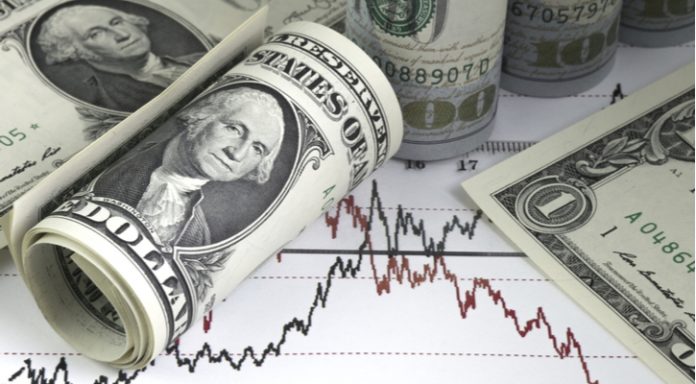Brexit uncertainty and US – China trade headlines sent the pound US dollar exchange rate lower. The pair hit a low of US$1.2726, the lowest level in almost two weeks.
| What do these figures mean? |
|---|
| When measuring the value of a pair of currencies, one set equals 1 unit and the other shows the current equivalent. As the market moves, the amount will vary from minute to minute.For example, it could be written:1 GBP = 1.28934 USDHere, £1 is equivalent to approximately $1.29. This specifically measures the pound’s worth against the dollar. If the US dollar amount increases in this pairing, it’s positive for the pound. Or, if you were looking at it the other way around:1 USD = 0.77786 GBPIn this example, $1 is equivalent to approximately £0.78. This measures the US dollar’s worth versus the British pound. If the sterling number gets larger, it’s good news for the dollar. |
Brexit uncertainty continues to be a major hurdle for the pound. As UK Prime Minister Theresa May tries to draw support for her Brexit plan, the size of the struggle she faces is becoming glaringly apparent. Even close allies are saying her Brexit deal is doomed and that it is worse, than the deal that Britain currently has. With the vote in Parliament now set for 11th December, Theresa May will need to convince MP’s from all sides to back the deal. Theresa May can’t count on her party voting the Brexit deal through. She will need to have support from the opposition party as well. However, the more support Theresa May tries to rally, the more opposition to the deal is growing.
If this deal is not voted through Parliament, then the chances of a no deal disorderly Brexit increase substantially. Brussels has made it clear that there is no going back to the negotiating table. Business leaders and leading economists have frequently said that a disorderly no deal Brexit would be the most damaging scenario for the UK economy and therefore the pound.
| Why is a “soft” Brexit better for sterling than a “hard” Brexit? |
|---|
| A soft Brexit implies anything less than UK’s complete withdrawal from the EU. For example, it could mean the UK retains some form of membership to the European Union single market in exchange for some free movement of people, i.e. immigration. This is considered more positive than a “hard” Brexit, which is a full severance from the EU. The reason “soft” is considered more pound-friendly is because the economic impact would be lower. If there is less negative impact on the economy, foreign investors will continue to invest in the UK. As investment requires local currency, this increased demand for the pound then boosts its value. |
Today investors will be looking towards the results of the Bank of England’s bank stress test. Given we are so close to Brexit, the stress test results will be more closely watched than previous results. Should the UK banking system pass the test, pound traders will feel that the financial system is at least slightly prepared for Brexit.
Will US GDP Data Pull Dollar Lower?
The dollar soared higher in the previous session as trade headlines dominated. President Trump affirming that tariffs on Chinese imports will increase to 25%, up from 10% shows that there has been little progress in trade talks with China. Meanwhile, White House advisor Larry Kudlow was quick to suggest that a deal was near. The dollar is the world’s reserve currency. In times of geopolitical tension and lack of clarity, investors often buy into the dollar for its safe haven properties.
Today investors will look towards US GDP data. Analysts expect the US economy has grown by 3.5% in the third quarter. Should economic growth show signs of decreasing, the dollar could fall.
| Why does poor economic data drag on a country’s currency? |
|---|
| Slowing economic indicators point to a slowing economy. Weak economies have weaker currencies because institutions look to reduce investments in countries where growth prospects are low and then transfer money to countries with higher growth prospects. These institutions sell out of their investment and the local currency, thus increasing supply of the currency and pushing down the money’s worth. So, when a country or region has poor economic news, the value of the currency tends to fall. |
This publication is provided for general information purposes only and is not intended to cover every aspect of the topics with which it deals. It is not intended to amount to advice on which you should rely. You must obtain professional or specialist advice before taking, or refraining from, any action on the basis of the content in this publication. The information in this publication does not constitute legal, tax or other professional advice from TransferWise Inc., Currency Live or its affiliates. Prior results do not guarantee a similar outcome. We make no representations, warranties or guarantees, whether express or implied, that the content in the publication is accurate, complete or up to date. Consult our risk warning page for more details.
This article was initially published on TransferWise.com from the same author. The content at Currency Live is the sole opinion of the authors and in no way reflects the views of TransferWise Inc.





